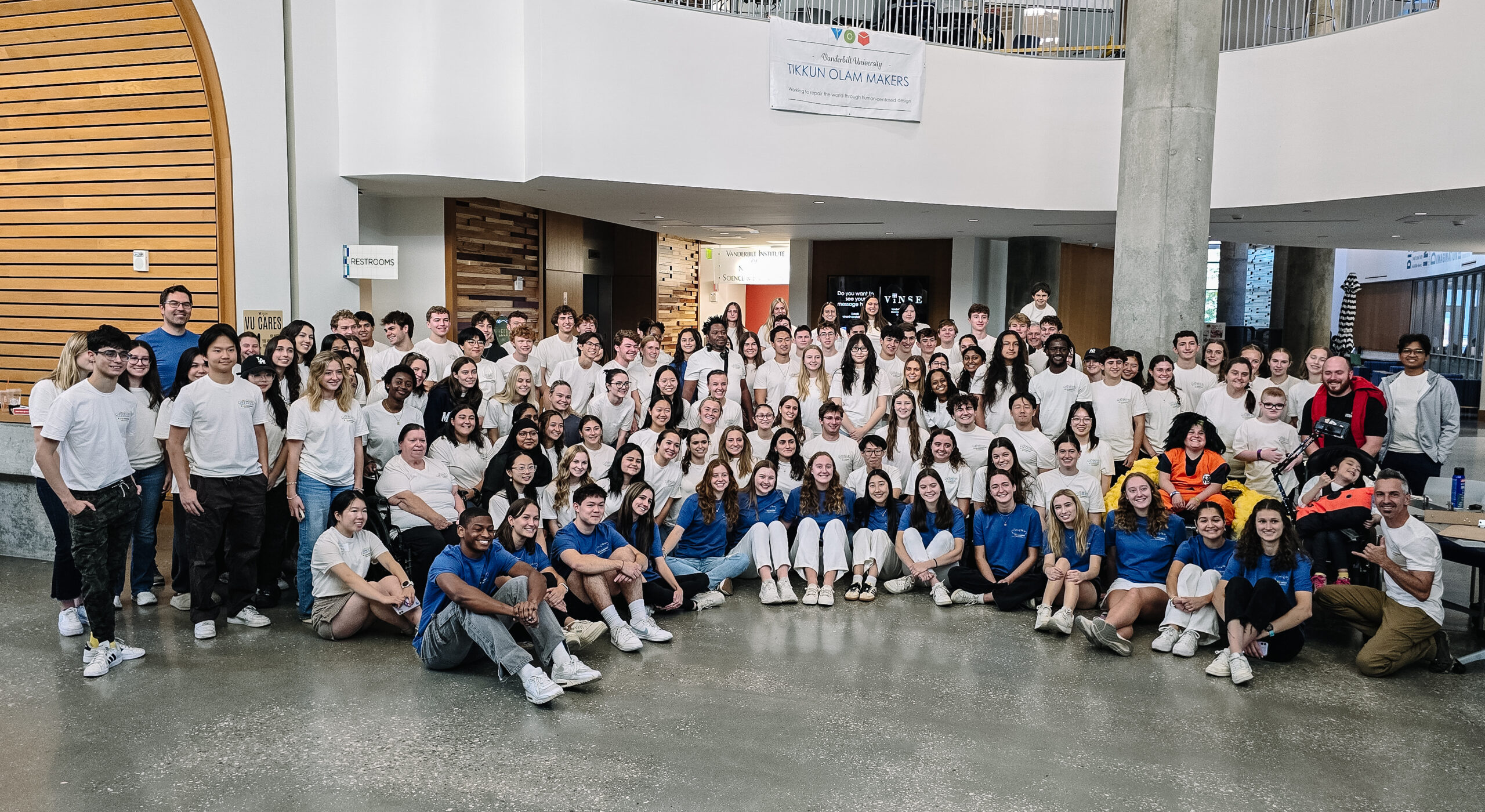The Tikkun Olam Makers (TOM) Makeathon brought together over 175 participants to work on projects that addressed the unique challenges of "Need Knowers"—individuals living with disabilities, the elderly, and underserved communities. This event highlighted TOM’s mission to create affordable, user-centered solutions.
“Every year, the Makeathon showcases the incredible potential of human-centered design to transform lives,” said Professor Kevin Galloway, Director of Making at the Wond'ry. “This event empowers our teams to tackle real-world challenges with innovative solutions that increase independence and autonomy for individuals facing unique obstacles. Seeing the tangible impact of these projects is a powerful reminder of the importance of accessible design in creating a more inclusive world.”

During this year’s Makeathon, teams collaborated with inspiring individuals to design and prototype solutions that foster independence and accessibility for people with diverse needs. Here are the highlights:
- Team 1 & AbleVoices: Partnering with Jen, the founder of AbleVoices, a nonprofit empowering students with disabilities through photography, this team focused on creating adaptive modifications for AbleVoices cameras. These modifications enhance accessibility, helping students capture their world with greater independence.
- Team 2 & Robby: Working with Robby, a Vanderbilt alumnus with paralysis from a spinal cord injury, this team developed a prototype automated door opener, closer, and locker, all controllable through Robby's Alexa device. This innovation will allow him more privacy and autonomy for virtual meetings.
- Team 3 & Beverly: Beverly, who experienced partial hand amputation and a stroke, received multiple adaptive kitchen tools to facilitate tasks like chopping, flipping, and stirring. Additionally, the team designed a prosthetic for her left hand and a supportive stand for her right arm, enabling her to play the piano once more.
- Team 4 & Kenny: Kenny, who struggles with neuropathy in his hands, worked with this team to create a series of aids, including a finger cast and modified writing tools. They also designed a custom night cast to keep his hands open, reducing morning stiffness.
- Team 5 & Miyako: Eight-year-old Miyako, who has muscle-weakening conditions, loves gaming on her Nintendo Switch. The team built wheelchair and car attachments for her screen, a sock aid, and a sunshade for her wheelchair, all designed to help her gain independence.
- Team 6 & Liam: With the high cost of specialized strollers, Team 6 designed two collapsible stroller prototypes for Liam, which can adapt as he grows, offering a more affordable, sustainable solution for his family.
- Team 7 & Deklan: Deklan, an 11-year-old with Duchenne Muscular Dystrophy, received a foldable art desk that attaches to his wheelchair, removable side panels for his ramp, and a unique Halloween costume for his school dance.
- Team 8 & Elise Shepard: Collaborating with Elise, a physical therapist at VUMC's Pi Beta Phi Rehabilitation Center, this team designed a take-home exercise mat and specialized foot inserts for the clinic’s standing frame, enabling better exercise options for patients with high muscle tone.
- Team 9 & Nassanah: With hypermobile Ehlers-Danlos Syndrome, Nassanah required support for daily tasks. The team created wrist braces for lifting, a vest for hands-free grocery carrying, and a suitcase attachment to reduce wrist strain.
- Team 10 & Susan Gray School: This project involved designing a customizable chair to support preschool students of varying needs. Through multiple design iterations, including adjustable height and lateral supports, the team plans to continue refining this solution.
- Team 11 & Elise from Pi Beta Phi Clinic: Another project with Elise addressed the need for patients with cerebral palsy to ground their feet during standing exercises. The team developed an adjustable board with foot pedals, allowing flexible foot positioning for stability.
- Team 12 & Hugh: For nine-year-old Hugh, who has clubbed hand syndrome, this team developed modified bike handlebars, adaptive winter gloves, and a cap-removal attachment for writing utensils, giving him increased ease and enjoyment in daily activities.
Each of these projects embodies the spirit of collaboration and innovation, demonstrating how custom assistive devices can transform lives by enhancing independence and empowerment.